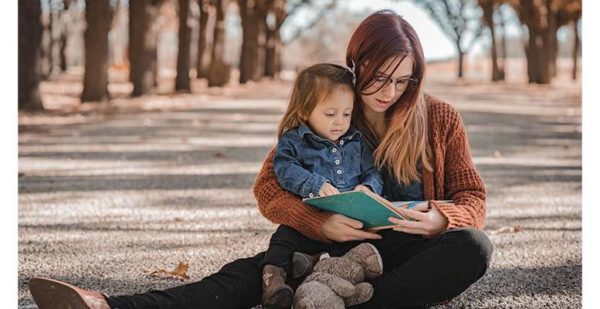

By CRISTINA JANNEY
Hays Post
Olivia Proberts of Hays is a beautiful, feisty 2-year-old. But her mother is trying to raise awareness about a rare and debilitating illness Olivia was born with.
Olivia was diagnosed with the hypophosphatasia, an inherited condition, even before she was born. The disease affects about 1 in 100,000 newborns. It is a deficiency of alkaline phosphatase, which along with calcium, is one of the major building blocks of bones.
This causes Olivia’s bones to be soft and prone to bowing and breakage.
The illness varies in severity from babies that don’t make it to birth, to adults misdiagnosed as having osteoporosis.
Olivia’s mother, Katelyn, said she had to watch Olivia closely as a baby, as a leading cause of death in infants with the disease is issues breathing because of small ribcages.
Olivia was also born with a clubbed foot, which required two surgeries, serial casting and physical therapy.
Olivia is now taking an injectable medication to help with the deficiency that causes her bones to be soft.
“She’s so little. She doesn’t understand why she has to get shots and why Mom is over the top of her with a needle. That’s terrifying,” Katelyn said. “I would be scared of someone was over top of me with a needle and I’m 22.”
However, her disease has caused delays in her gross motor skills. She was delayed in rolling over and crawling and only learned to walk just before she turned 2.
Katelyn said she was overwhelmed with anxiety about Olivia’s condition when she was first born. Katleyn, 22, found out she was pregnant when she was only 19.
“It was scary already being a young mom without a whole lot of resources, but going through the process of not only finding out that you are going to be a mom but with a child with very high needs. It is kind of terrifying.
“It was how to become a mom to this particular child, but it made me appreciate things a lot more. It made me appreciate her and the amount of joy she brings people.”
Katelyn calls Olivia her miracle hummingbird.
“Hummingbirds are so small and so fragile, but throughout my pregnancy she continued to move and flutter inside my stomach.”
Not a lot of people knew about Olivia’s condition, and Katelyn struggled with the knowledge that her unborn daughter might not come home from the hospital.
“It made me appreciate her and life a lot more and pushed me and ways that I didn’t expect” Katelyn said. “It made me really want to provide and do better for ourselves.”
Katelyn found support and resources through Soft Bones, an advocacy organization that raises awareness about hypophosphatasia.
Katelyn joined a webinar and asked other families about how they deal with the knowledge their loved one could break a bone at any time. A wife whose husband has the condition offered Katleyn advice.
“She said it is going to be a lot of calming on your end, because it is a scary thing. You’re constantly living in a state of panic and anxiety is not going to make it any better or prepare you any more. It is going to have you really riled up.
“She gave some tips on how to do some self-care things, which I really needed at the time, because I was a mess.”
Katelyn is telling her story through Soft Bones on Feb. 29, which is recognized as Rare Disease Day.
One of her favorite resources is a graphic novel, which she reads to the children in the 3-5 class at Early Childhood Connections where she works.
“It is really nice for kids to understand that this child might look at little different,” Katelyn said. “They might have crutches or a walker, but they still like to play like I do. I was nice to have that resource to explain to my class why my daughter is just like them but just a little different.”
Katelyn knows here daughter has a tough road ahead and not just phsycially.
“She is firey, which is perfect because of everything she has to go through I can’t imagine what it would be like if she was docile,” Katelyn said. “She is independent. She wants to do it on her own, which I think is going to be a huge contributing factor when she gets older as how she handles it.
“It don’t see her as ever taking any flack from anyone. I think she is going to be very vocal in what she wants and how she wants to be treated. I am going to do my best as a other so she can handle that — the fact that kids are mean and they pick up on those little differences.”
Katelyn said she wants Olivia to know she is beautiful even if she has to use a walker or wear casts again.
“I really just want to touch on the fact that how exponentially wonderful she is as a person,”Katelyn said. “I really think she is in this tough spot and she is going to be for the rest of her life, but I think it will show other people that even though they might be in pain or have this hard thing, they can keep going.
“I hope that is a motivation for others. She is going to change a lot of people’s lives I think.”
Katelyn said Olivia has wonderful doctors, but they are four hours away at Children’s Mercy Hospital in Kansas City.
The family is moving to the Kansas City area in June, not only to be closer to Olivia’s medical care, but also be closer to an adaptive preschool and other services.
To learn more about Olivia’s condition, hypophosphatasia, visit softbones.org.